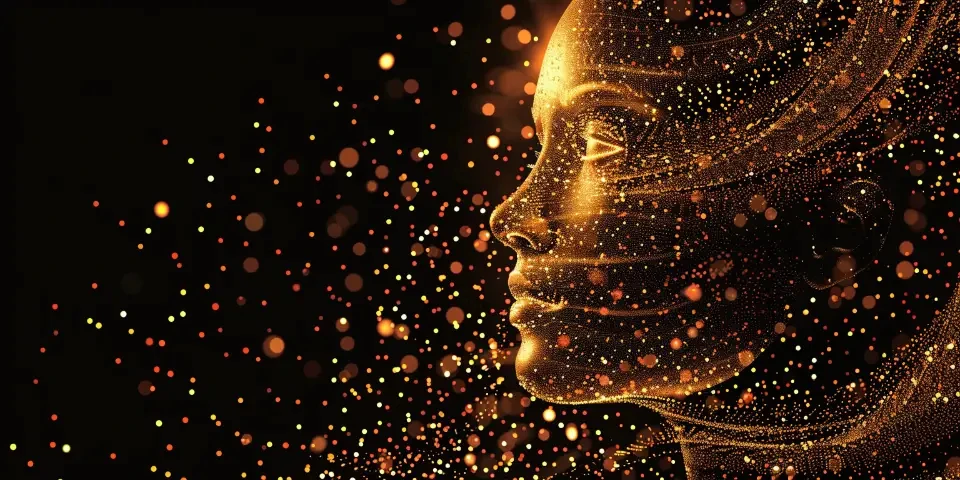The Poet's Muse Exploring the Influence of AI in Inspiring Poetic Creations
The world of poetry has always been intertwined with human emotions, experiences, and creativity. Over the years, poets have sought various sources of inspiration to bring their verses to life. In recent times, the emergence of Artificial Intelligence (AI) has opened up new possibilities for poets. This article delves into the influence of AI in inspiring poetic creations and explores the ways in which poets are embracing this technology.
1. AI as a Collaborative Partner
The collaboration between humans and AI is revolutionizing the realm of poetry. AI platforms, such as OpenAI's GPT-3, assist poets by generating lines, offering word suggestions, and even expanding on creative ideas. In this partnership, AI acts as a muse, providing unique perspectives and stimulating the poet's imagination.

However, it's important to note that AI should be viewed as a tool rather than a substitute for human creativity. The human poet remains in control, selecting and adapting the AI-generated content to align with their artistic vision.
2. Enhancing Metaphorical Language
AI algorithms have an impressive ability to analyze vast amounts of data and extract patterns. This proficiency can be invaluable for poets aiming to craft evocative and metaphorical language.
For instance, an AI-powered platform can analyze various texts, including literature, historical documents, and even scientific publications. By feeding this information to the AI, the poet gains access to a treasure trove of metaphors, similes, and symbols, enabling them to enrich their poems with depth and complexity.
3. Exploring New Poetic Forms and Structures
AI has the potential to push the boundaries of traditional poetic forms by generating alternative structures and experimenting with unique patterns. By analyzing vast amounts of existing poetry, AI algorithms can identify common patterns and propose innovative variations.
AI tools like Poetweet, for instance, use algorithms to transform tweets into poetic forms such as sonnets or haikus. This not only expands the possibilities for poetic expression but also creates a bridge between the digital age and traditional forms of poetry.
4. Overcoming Writer's Block
Writer's block is a familiar challenge for poets and can hinder creative output. AI platforms offer a solution by providing instant inspiration and overcoming the stagnation that often accompanies a temporary creative impasse.
AI-generated prompts, random word generators, and even conversation bots can ignite the spark needed for ideas to flow. These tools present poets with new perspectives, offering fresh angles to approach their writing and catalyzing the creative process.
5. Preserving Poetic Legacy
AI technology has the capacity to preserve and elevate the works of renowned poets from the past. Through sophisticated algorithms, AI can analyze a poet's body of work and replicate their style, tone, and themes.
This preservation of poetic legacy allows aspiring poets to learn from the masters and engage in a meaningful dialogue with the past. It enables poets to explore familiar terrains or even reimagine historical pieces with their unique touch.
6. Ethical Considerations and Bias
While AI brings immense potential to the poetic landscape, it also raises important ethical considerations. AI algorithms may unwittingly perpetuate biases present in the data used to train them.
Poets must be cautious about the potential biases that AI-generated content might carry. It is essential to critically evaluate and fine-tune the contributions made by AI to ensure they align with the poet's intentions and values.
7. Embracing the Unexpected
One of the fascinating aspects of incorporating AI into poetry is the element of surprise. AI algorithms often generate unexpected combinations of words and concepts, introducing poets to hitherto unexplored creative territories.
This element of surprise can lead to serendipitous discoveries, enabling poets to break free from their comfort zones and develop an idiosyncratic poetic style that merges human ingenuity with AI-driven inspiration.
8. The Role of Poet-AI Interaction
The relationship between poets and AI is an ongoing interaction that involves adaptation and learning. As poets engage with AI platforms and explore the possibilities they offer, they shape and refine the algorithms' outputs to suit their creative vision.
Recognizing the potential of this symbiotic relationship, AI developers are continuously improving their platforms based on feedback from poets, thereby facilitating a more effective collaboration.
9. Encouraging Diversity and Inclusivity
AI can play a crucial role in promoting diversity and inclusivity within the poetic community. By analyzing a wide range of poetry from diverse cultures, historical periods, and marginalized voices, AI platforms can inspire poets to explore a broader array of perspectives.
This AI-driven exposure can lead to a more inclusive representation of voices in contemporary poetry, challenging societal norms and enriching the art form with a tapestry of diverse experiences.
10. The Uniqueness of Human Experience
While AI can inspire and contribute to poetic creations, it cannot replicate the entirety of the human experience. The nuances of emotion, personal history, and social context are still deeply intertwined with human creativity.
Poets must recognize the limitations of AI and continue to push the boundaries of their own artistic expression, ensuring that the human touch remains at the core of their work.
11. Frequently Asked Questions
Q: Can AI-authored poetry genuinely be considered art?
A: The definition of art is subjective and influenced by various cultural and historical factors. While AI can generate impressive poetry, the question of authorship and human intent remains essential to determine the artistic nature of a poem.
Q: Will AI replace human poets in the future?
A: AI's role in poetry is currently that of an assistive tool. While AI can enhance and inspire poetic creations, it cannot fully replicate the complexities and nuances of human creativity. Human poets will continue to bring their unique perspectives and emotions to the art form.
12. References
1. Dickinson, E. (2020). Artificial Intelligence and Poetry. The Guardian.
2. Smith, J. (2019). The Role of AI in the Creative Process. Medium.
3. Williams, R. (2018). Creativity in the Age of Artificial Intelligence. Harvard Business Review.
